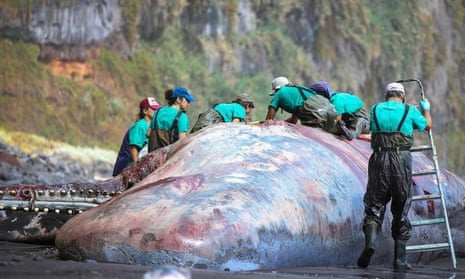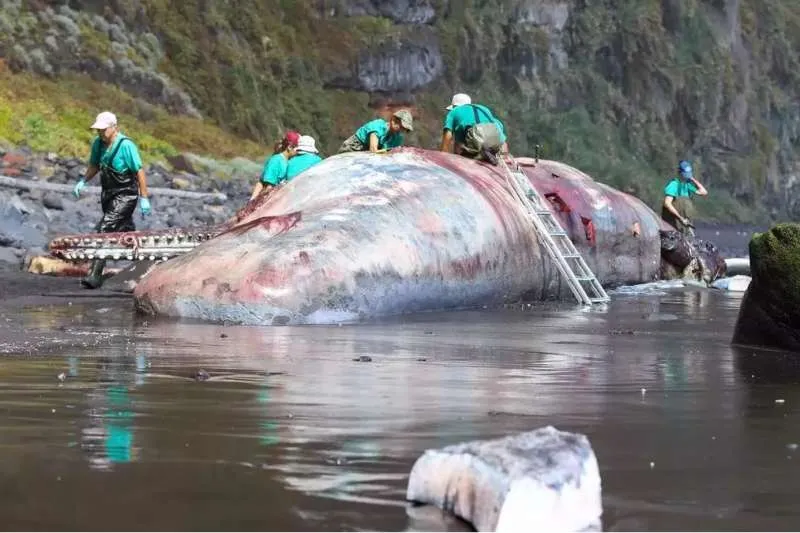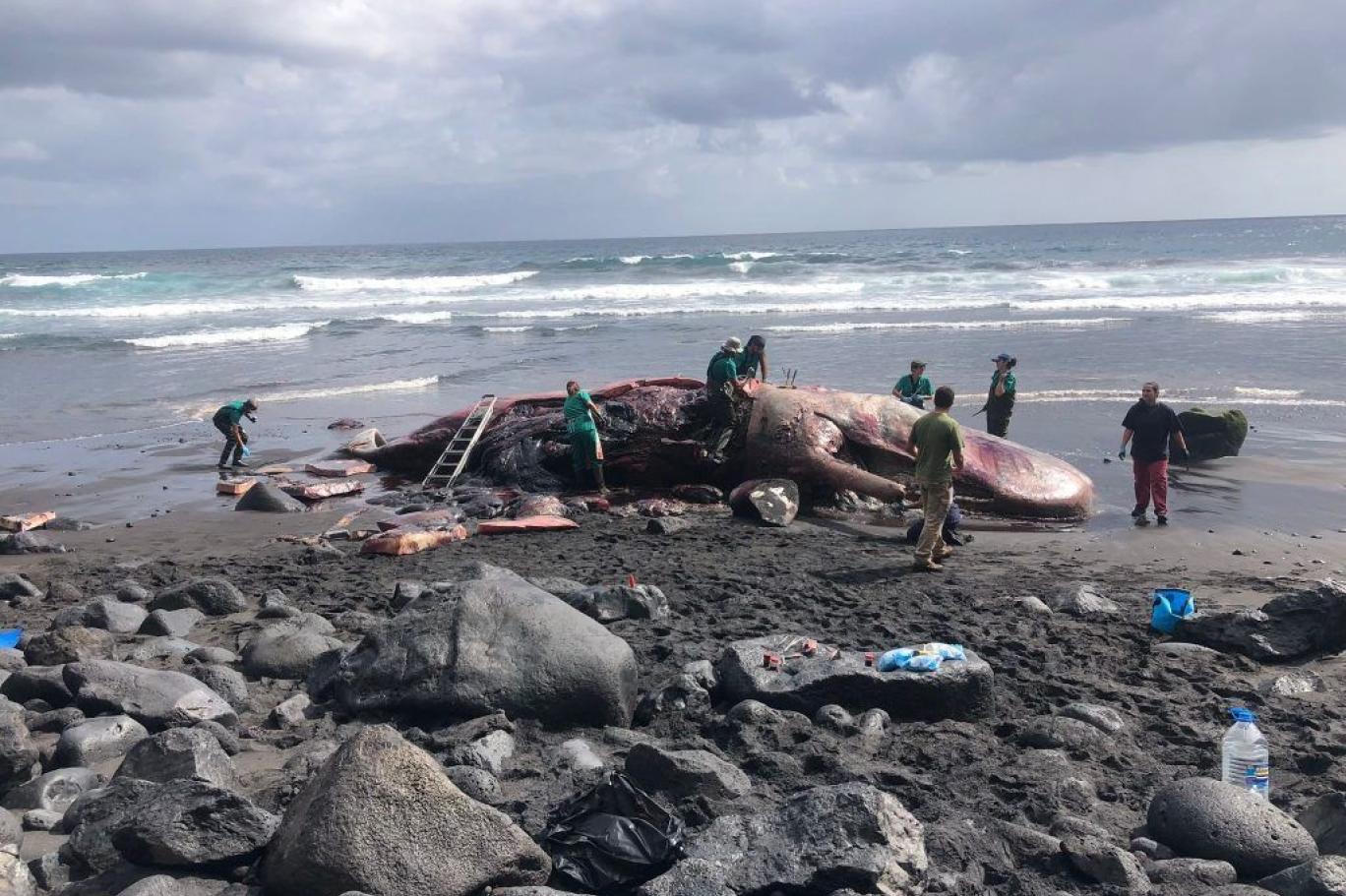Fri 07 July 2023:
No one guessed a priceless treasure was concealed in a sperm whale’s entrails when it washed up dead on a beach in La Palma, one of the Canary Islands.

Although conducting a postmortem was challenging due to the rough waves and rising tide, Antonio Fernández Rodrguez, director of the University of Las Palmas’ institute for animal health and food security, was adamant on learning what caused the whale’s death.
Suspecting a digestive problem, he inspected the animal’s colon – and felt something hard stuck to that part of the intestine. “What I took out was a stone about 50-60cm in diameter weighing 9.5kg,” he said. “The waves were washing over the whale. Everyone was watching when I returned to the beach but they didn’t know that what I had in my hands was ambergris.”

University of Las Palmas staff examining the sperm whale, which had a 9.5kg block of ambergris in its intestine. Photograph: Universidad de Las Palmas de Gran Canaria
Ambergris is a rare substance, often known as floating gold, that has been the holy grail of perfumers for ages. The lump Fernández was holding was worth around €500,000 (£430,000).
The origin of ambergris, produced by about one in 100 sperm whales, was only solved when large-scale whaling began in the early 19th century. Whales eat large quantities of squid and cuttlefish, most of which cannot be digested and is vomited out. But some remains, and over the years binds together in the whale’s intestines to form ambergris.

Academics inspecting the dead sperm whale in Las Palmas. Photograph: Universidad de Las Palmas de Gran Canaria
This is sometimes excreted, which is why ambergris is most commonly found floating in the sea. But sometimes, as in the case of the whale in La Palma, it grows too large, rupturing the intestine and killing the whale.
Ambergris has a woody scent like sandalwood but also contains ambrein, an odourless alcohol that can fix and extend the life of scents, hence its popularity among perfumers.

Ambergris extracted from the bowel of a dead sperm whale on the island of La Palma Photograph: Universidad de Las Palmas de Gran Canaria
Over the course of his career, Fernández has conducted autopsies on more than 1,000 whales—including 50 sperm whales—but he had never come across ambergris before, highlighting the rarity of the substance.
“This is a unique case in my more-than-30 years of business and thousands of autopsies performed,” Fernández told National Geographic España.

The institute is looking for a buyer, and Fernández said they hoped funds raised would go towards helping victims of the volcano that erupted on La Palma in 2021, which caused more than €800m (£685m) in damage and destroyed hundreds of homes and businesses.
The US, Australia and India have banned the trade in ambergris as part of the ban on hunting and exploiting whales.
SOURCE: INDEPENDENT PRESS AND NEWS AGENCIES
______________________________________________________________
FOLLOW INDEPENDENT PRESS:
TWITTER (CLICK HERE)
https://twitter.com/IpIndependent
FACEBOOK (CLICK HERE)
https://web.facebook.com/ipindependent
Think your friends would be interested? Share this story!






